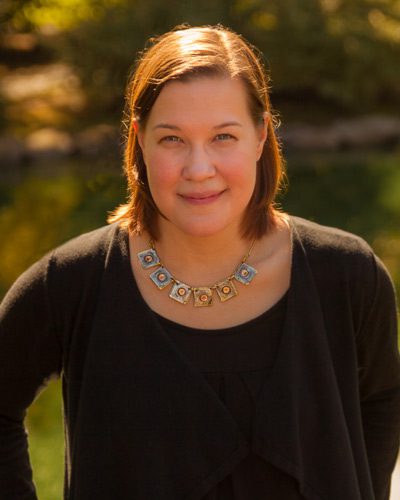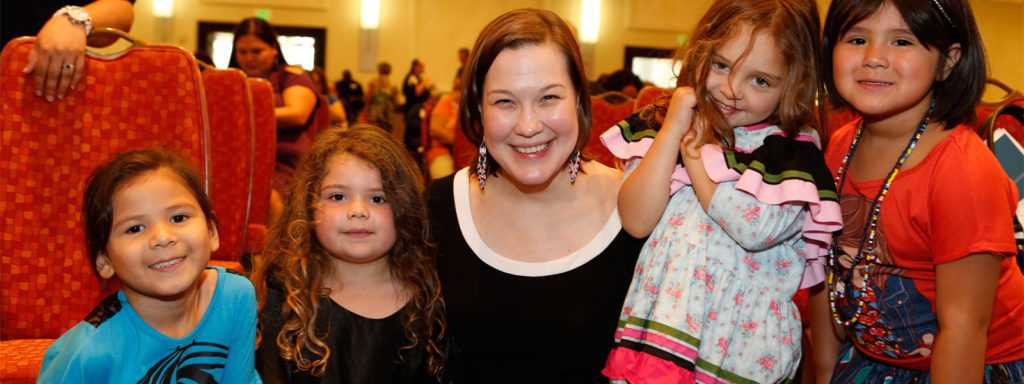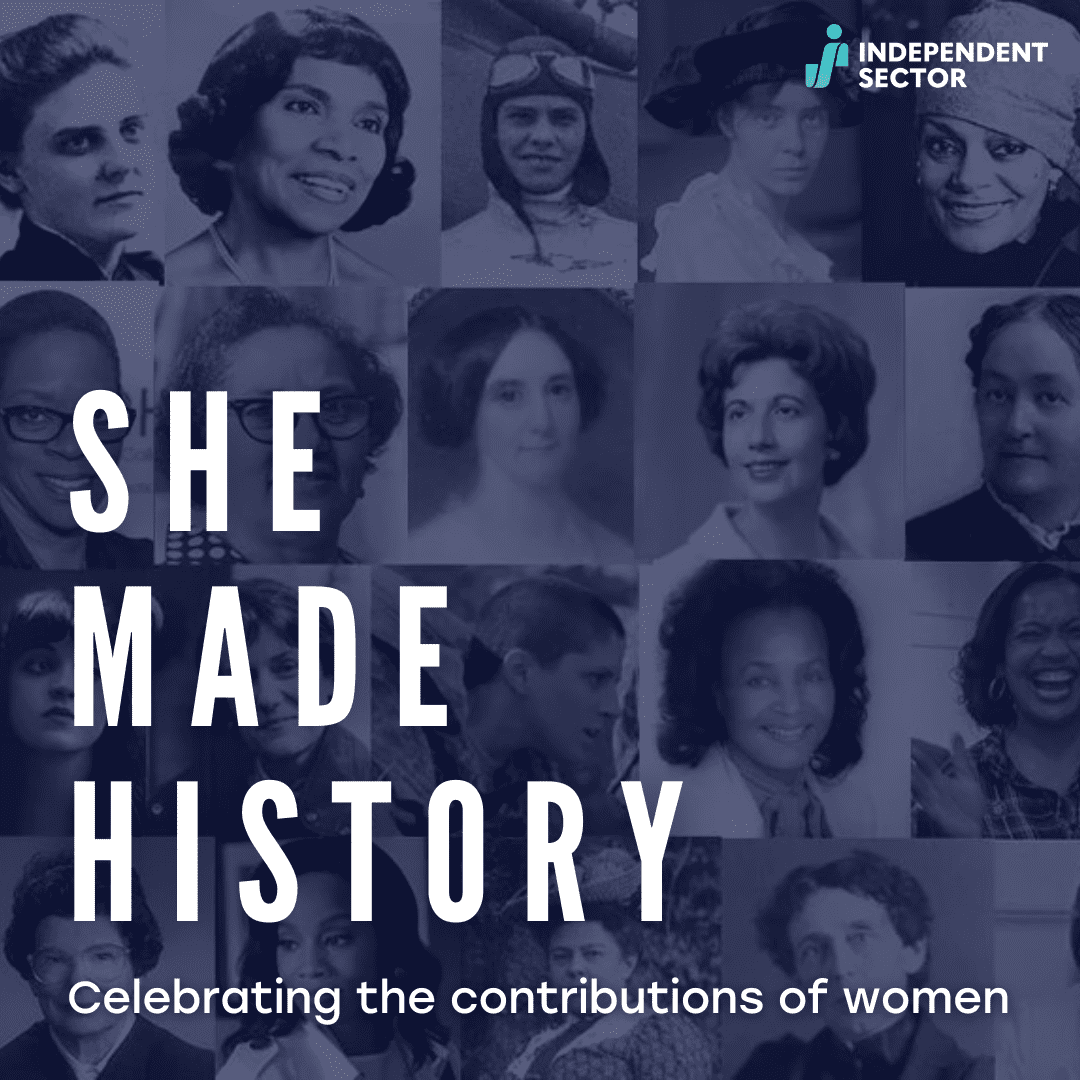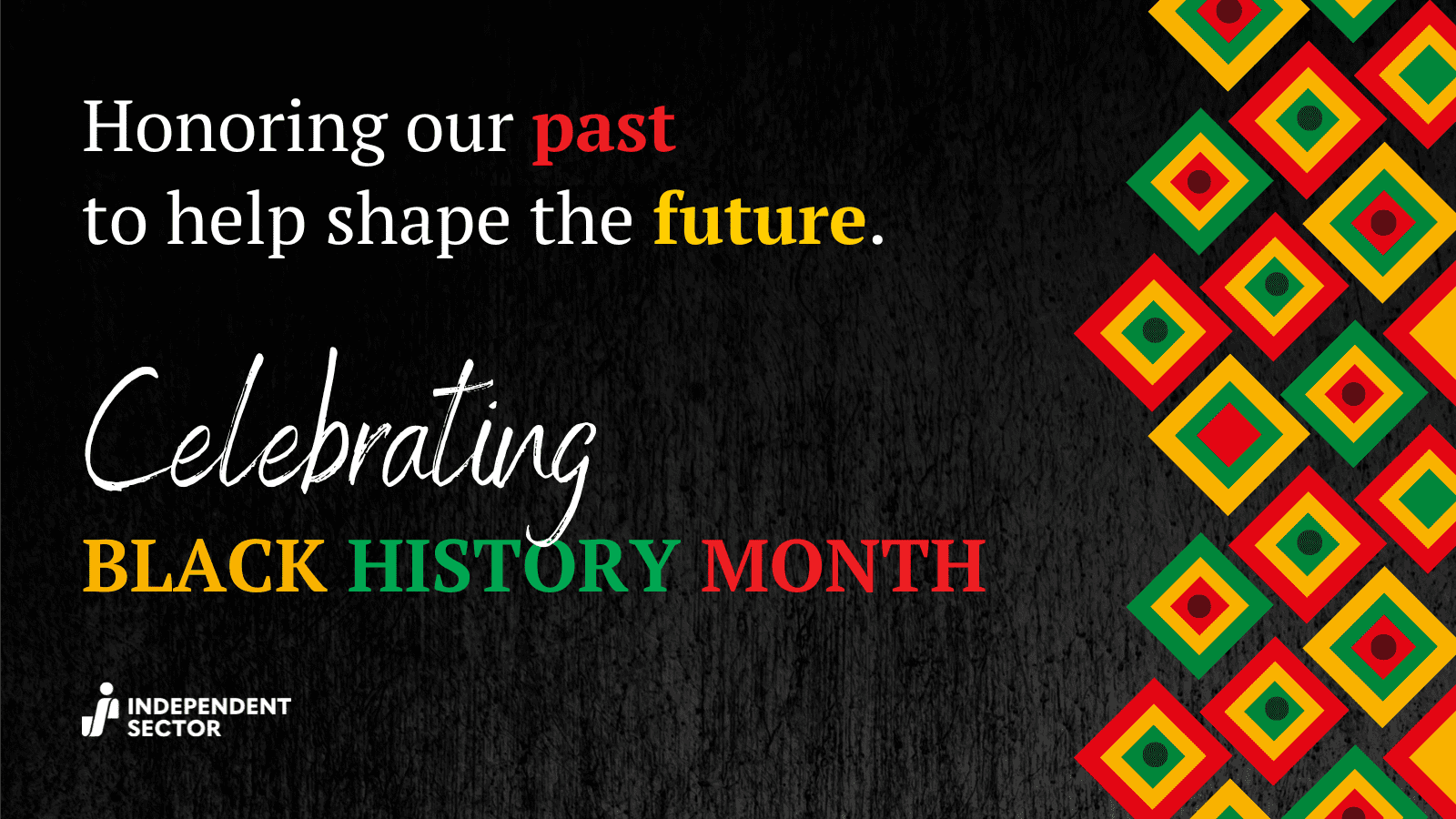By Sarah Kastelic
“Leadership is a privilege and a sacrifice.”
What stands out in my experience in my Native culture is that I was put in a position to be of service. You could volunteer or you could be ‘voluntold’ to take the notes and report back on behalf of your group, to be of service to the group. As a young leader, I was often voluntold, and the opportunities to be of service were authentic leadership training. My training as a young person and the generous feedback I received were a real investment in me by my community.
The privilege of my current job is staggering as the head of a national organization dedicated to the well-being of Native children and families. When you think about the trust our board places in me, developing a $3.5 million budget, picking the right projects, hiring the right people, and thinking about impact on our mission, it is staggering.
In some of our Native teachings, our approach to decision-making is to think about the impact of our decision seven generations from now; it does not just concern a particular grant, project, partnership, or political initiative, but our decision should be guided by how it will affect people, relationships, resources, and the environment seven generations in the future. It affects how you spend your time and the work you choose to do.
But, gosh, if someone had told me it would be this hard…? In a webinar I did recently with Daniel Lee of the Levi Strauss Foundation, he talked about learning how to “tamp down the urgency” that you feel as a young leader. It’s difficult. You have to be vulnerable and constantly reflecting and learning even as you implement your plan.
Shared leadership is a challenge. I try to clarify ambiguities between roles and empower people to make decisions about their work. I’m inviting them to take ownership and make decisions together. But they often ask “Who really gets to make the decision?” I often find myself on a walk with my husband and dog after dinner, still thinking about how to better communicate about what I’m inviting people to do, to contribute to our work.
“Speak your heart.”
Three weeks ago, we had our weekly staff meeting. In these meetings I have the opportunity to give an update about what I’m working on as well as share something about our core values and how we live them. The topic of conversation this time concerned our recent executive leadership transition and the opportunity and challenge in the fact that our founder, who built the organization 30 years ago, was still working for the organization. He wants to continue to do this work, and he has valuable things to contribute.

Sarah Kastelic, Executive Director at National Indian Child Welfare Association.
I decided that when he assumed the new role of senior advisor, he would be out of the office in the first year. I thought this was a good way to have some space and distance while I put my management model in place and we all got settled into my different leadership style. It proved way harder than anything than I have done; it has been really messy, and we made some mistakes. So, six months in, I admitted to the staff that it wasn’t working the way I thought it would, and I asked him to be in the office for two days a week. As good as my intentions were, there had been real problems with communication. Staying out of the office meant that he had no casual interactions with staff, and no way to evolve his role with the support and feedback of our leadership and staff.
Terry (Cross) and I have a very close relationship. He mentored me for 15 years and chose me as his successor. He’s an elder, and he’s a man. I am a young woman, still learning. We have candor in our relationship and treat each other with kindness and grace. At the same time, I can say “ouch” when he oversteps or, after 30 years of the responsibility for making all of the decisions, forgets that a decision is mine to make.
“Spiritual strength”
The National Indian Child Welfare Association was founded 30 years ago, and we had a grassroots board. We are a spiritual organization, but not religious. That can be tricky when you have 20 Native people from across the country on the board and a staff of 23 people, majority Indian but not all, and from many different places with different life experiences.
Fostering spiritual strength has everything to do with understanding our role and mission, what children need, how can we facilitate communities’ abilities to overcome hundreds of years of federal policy that intentionally sought to separate children from their families and culture – federal policies that had disastrous consequences.
To be well from a spiritual and cultural perspective means something different to us. One part of it is being able to relate to your elders. Yes, it is important for a young person to finish high school, but what does success look like, what are the protocols for interacting with your elders? Knowing who you are and where you came from, knowing the protocol for interacting with elders and being of service to your community, is just as important as finishing high school.
“When I was in graduate school, I was interested in the federal government’s inability to keep its promises and pledges to protect Native people, to ensure our health and our well-being.”
I was also interested in the philanthropy of large private foundations. I found that their giving to Native causes and communities was small even in comparison to the Native population – just a tiny fraction of 1 percent of grant dollars. I wondered if the mission and priorities of large foundations and Native communities were mismatched, and I interviewed Native and non-Native program officers and board members to learn why grantmaking was so low. I found:
- Because tribes are governments, in some cases barriers exist because foundations have a policy of not giving to governments.
- The language tribal communities used to describe their challenges, strengths, and proposed projects could be difficult for foundations to process and understand – there was a communications challenge when foundations did not recognize tribal proposals as being aligned with what they wanted to fund even when innovative projects were a good match.
- Two board members who were Native and sat on large foundation boards said Native communities were less likely to ask for resources. They found non-Native grantees were much more assertive in their communication, including asking for help securing the next grant and building relationships.
- Native communities were also more humble about their accomplishments.
“Sharing a place with my younger brother was incredible.”
My youngest brother is six years younger than me, and at one point, when my parents were at their wits’ end with him, my paternal grandmother said he was ‘Sarah’s responsibility.’ He came to live with me in St. Louis right as I was starting a Ph.D. program. I was so studious, hyper-organized, and super rigid. I took myself so seriously, and he was a wild teenager. We lived together for four amazing years, and now we talk about the ways we rubbed off on each other and are both much happier people for the experience.
“I never thought I had a chance to win Independent Sector’s American Express NGen Leadership Award.”
I was completely shocked to be a finalist. I watched as the award competition was advertised for several years, and the only reason I finally applied was that it was the last year I was eligible. I never thought I had a chance. The other leaders were poised, eloquent, and had inspiring visions for the future right off the top of their heads.
In our cultural teachings, we are taught that we are the manifestation of the prayers of our ancestors. Our ancestors prayed us into being so that we could stand on their shoulders and follow the path that they began for us. However imperfect, here I am in all my humanness. They prayed me into this role. Who am I to question my ancestors?
Sarah Kastelic is the executive director at the National Indian Child Welfare Association and serves on Independent Sector’s Board of Directors.



